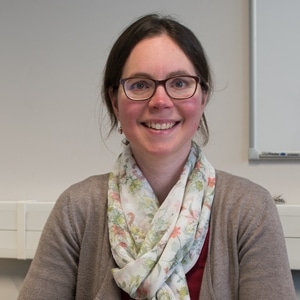project
Identification of risk factors for the development of incontinence-associated dermatitis category 2 in nursing home residents
project duration: 05/01/2015 - 30/04/2016
Summary

The aim of this study was to identify characteristics independently associated with a higher risk of developing skin damage because of incontinence [incontinence-associated dermatitis (IAD) category 2] in nursing home residents. As part of a larger randomised controlled trial, IAD incidence was monitored for 1 month in a sample of 381 incontinent residents using a validated IAD Severity Categorisation Tool. Data on demographical, physical, functional and psychological characteristics were collected. The overall IAD incidence (category 1-2) was 30·0%, and 6% of the participants developed skin damage (IAD category 2). Residents who developed IAD category 2 were less mobile [odds ratio (OR) 2·72, 95% confidence interval (CI) 1·06-6·94], had more friction and shear issues (OR 2·54; 95% CI 1·02-6·33) and had more erythema due to incontinence (OR 3·02; 95% CI 1·04-8·73) before IAD category 2 occurrence. Care providers should give full attention to risk factors to both detect residents at risk for IAD development and to start prevention in time.
promotor

Prof. dr. Dimitri Beeckman
Prof. dr. Dimitri Beeckman holds a BSc. in Nursing, an MSc. in Nursing and Midwifery, an MSc. in Education, and a PhD from Ghent University in Belgium. His doctoral thesis focused on pressure ulcer prevention and management of Incontinence- Associated Dermatitis (IAD). In 2010, he became a lecturer at the Florence Nightingale School of Nursing & Midwifery at King’s College London in the UK. Currently, he works as a Professor of Skin Integrity and Clinical Nursing at the University Centre of Nursing and Midwifery at Ghent University in Belgium. He is a Visiting Professor at the Faculty of Health and Medical Sciences at the University of Surrey (Guilford, UK) and at the School of Nursing and Midwifery at the Royal College of Surgeons in Ireland (Dublin, Ireland). Prof. Beeckman is Executive Board Member of the European Pressure Ulcer Advisory Panel (EPUAP) and serves as Chair of the Scientific Committee since 2013. He also co- chairs the EPUAP Education Workstream. In 2016, he was a member of the International Scientific Committee of the World Union of Wound Healing Societies Conference. In March 2017, he chaired the 1st European Pressure Ulcer Prevention and Management Masterclass in Ghent. He is specialized in skin integrity research, clinical trials, healthcare education, implementation science and instrument development and validation. In 2013-2014, he authored the Belgian guidelines for pressure ulcer prevention and treatment (supported by the Belgian Healthcare Knowledge Centre, KCE). In 2015, he authored the International Best Practice Document about prevention and management of Incontinence- Associated Dermatitis, published by Wounds International. He acts as policy advisor of the Belgian Federal Public Service Health, Food Chain Safety, and Environment. He authored and co- authored over 80 scientific publications in international peer- reviewed journals. He presented his research in > 50 countries all over the world. He is Consulting Editor of the Journal of Wound, Ostomy and Continence Nursing, the Journal of Tissue Viability, as well as Associate Editor of BMC Geriatrics. Prof. Beeckman holds different Fellowships such as Sigma Theta Tau International Honor Society of Nursing and the European Academy of Nursing Science.
staff members

Nele Van Damme
Nele Van Damme (MSc, RN) is a PhD student at the University Centre of Nursing and Midwifery. She holds a BSc. in Biotechnology, a BSc. in Nursing (with a supplementary education in Intensive Care and Emergencies), and a MSc. in Nursing and Midwifery. Her PhD focuses on the prevention of incontinence-associated dermatitis (IAD), and more specifically on a Cochrane systematic review, the identification of IAD risk factors in nursing home residents and critically ill patients, the development and validation of instruments measuring nurses’ knowledge and attitudes towards IAD prevention, and the identification of histopathological differences between IAD and pressure ulcers.